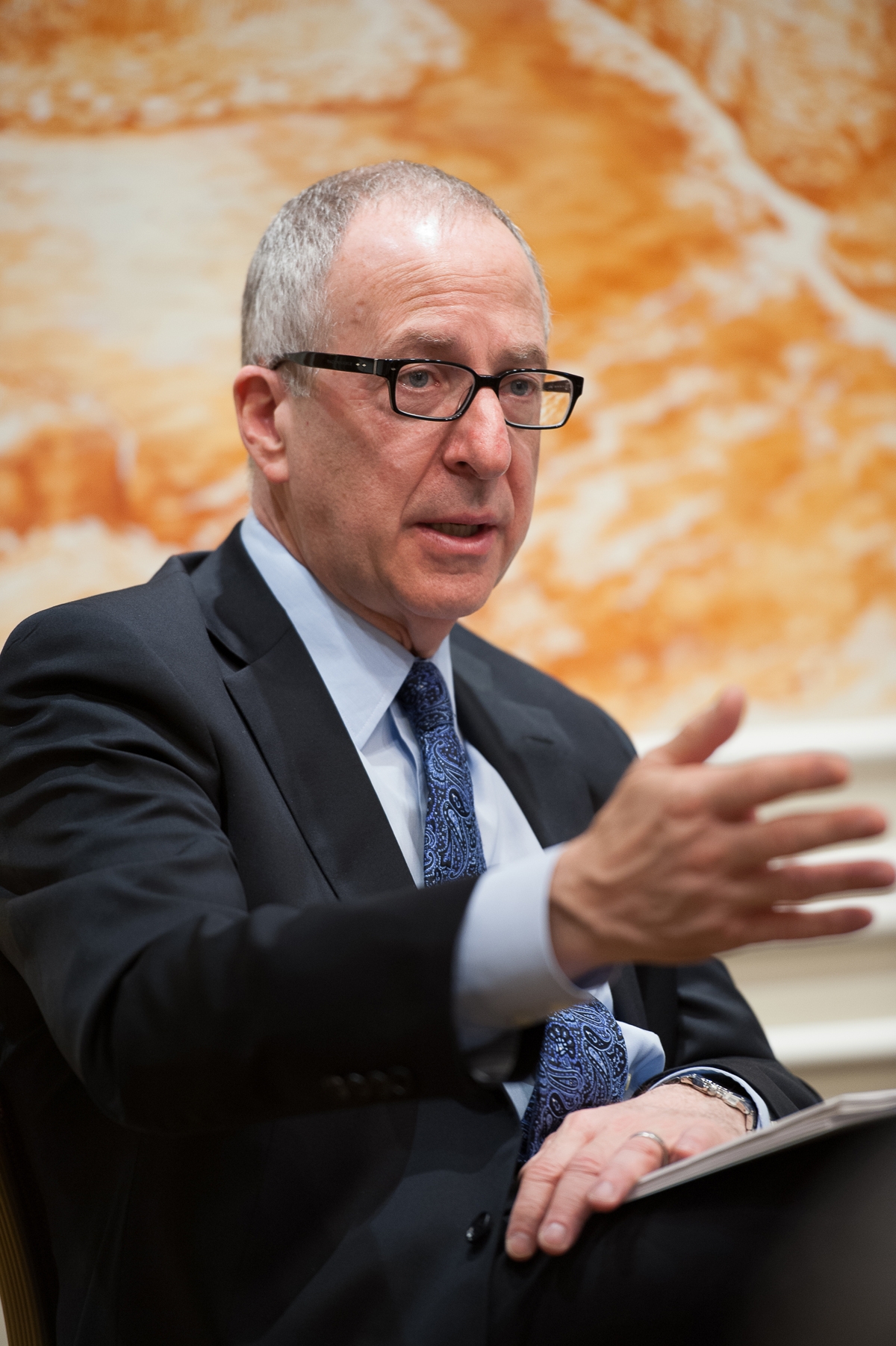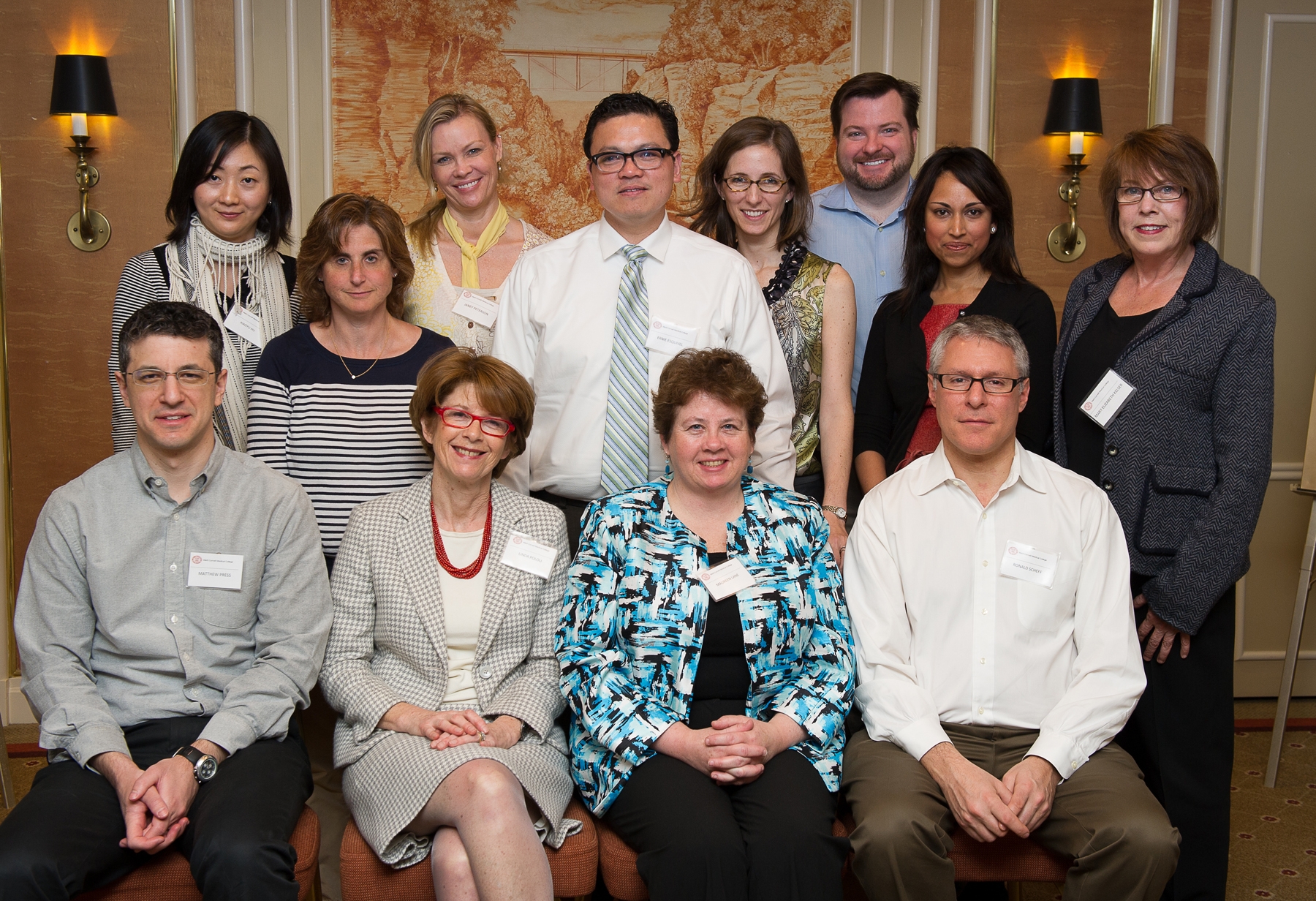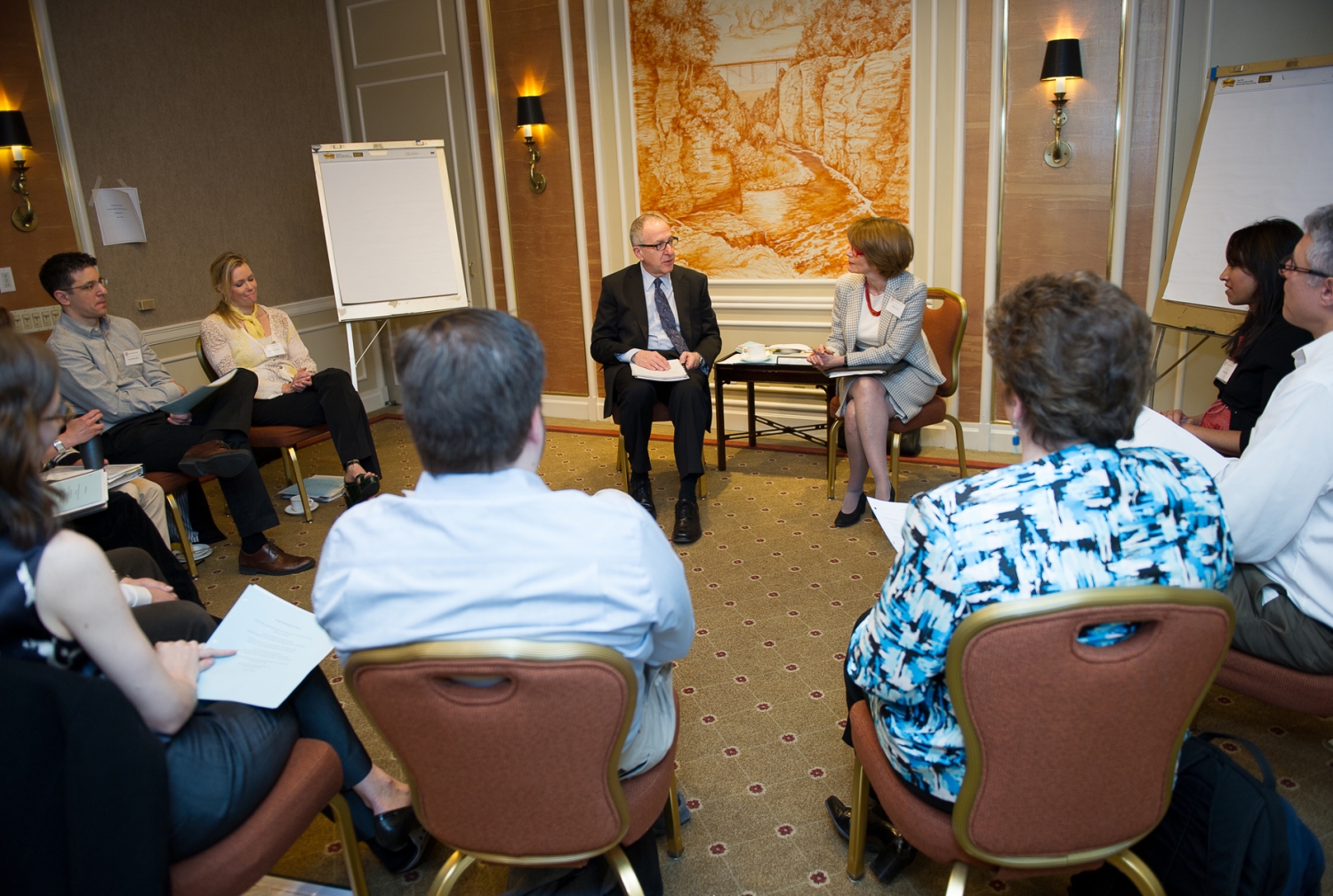For physicians and biomedical scientists, a career in academic medicine can reap great rewards but such a career is also intensely competitive and pressure-filled. It's for that reason that it is vital to infuse faculty mentoring and development into the culture of academic medical centers.
Cornell University President Dr. David J. Skorton emphasized this point last month to 10 Weill Cornell Medical College faculty members who take part in the Department of Medicine's Faculty Development Mentoring Program, a novel peer mentoring program that was launched in 2010 to mentor faculty in the early stage of their careers.
On April 10, Dr. Skorton spoke to and exchanged ideas with the current group of assistant professors participating in the program. Their success as faculty, he said, is fundamental to achieving the Medical College's mission of developing and retaining outstanding clinicians, educators and scientists. To attain that success and facilitate career development, faculty need to reflect on the choices they've made and rely on their entrenched values to lead them in the right direction.

Cornell University President Dr. David J. Skorton Photo credit: Amelia Panico
"I think academic medicine can be dehumanizing," Dr. Skorton said. "You think about your career instead of your life and personal values."
The Department of Medicine faculty mentoring program, developed by Dr. Linda Pololi, senior scientist at Brandeis University and director of the National Initiative on Gender, Culture and Leadership in Medicine (C-Change), is designed to be collaborative, diverse and cross-specialty. About a dozen or so faculty members representing a cross-section of the Medical College in discipline — basic science, clinical research and education — take part in the 10-month course, which involves monthly eight-hour group sessions conducted offsite.
Participants learn how to align their careers and life goals with their values, enabling them to develop individualized career plans. They also learn how to improve oral presentation and writing skills and focus on team building, leadership, negotiation as well as other important skills requisite for success in academic medicine.
"My role is to provide support and guidance for each of the participants to achieve career advancement goals for themselves," said Dr. Pololi, who is facilitating two peer-group mentoring programs for early- and mid-career professors in the Department of Medicine. "I guide them through a structured process of individualized career planning using a values-based approach. The participants learn to collaborate, trust and mentor each other."
While the results of the program will only be seen as these faculty move along in their burgeoning careers, a survey taken of participants in last year's mentoring class indicates that all found the program valuable. The same seems to be true of the faculty going through the program this year.

Assistant professors at Weill Cornell who participate in the Department of Medicine's Faculty Development Mentoring Program. From front row to back, left to right: Drs. Matthew Press, Linda Pololi, Maureen Lane, Ronald Scheff; Drs. Meredith Lash, Ernie Esquivel; Drs. Xiaoyu Hu, Janey Peterson, Juliet Aizer, Tara Bishop, program Administrator Mary Elizabeth Kelser; Dr. J. Travis Gossey. Photo credit: Amelia Panico
"I think it's been fantastic," said Dr. Tara Bishop, assistant professor of medicine and assistant professor of public health. "I've never had an opportunity to have time set out to think about my career and where I want to be in the next decade and what it'll take to get there."
To build a collaborative and collegial team of junior faculty peers, program administrators in the Department of Medicine sought out those who represent the broad range of research and educational goals that engage the faculty at Weill Cornell. The participants say these efforts have been successful.
"I appreciate the opportunity to join with other faculty members to focus on such important issues," said Dr. Matthew Press, assistant professor of medicine and assistant professor of public health. "I think it really has fostered collegiality and for me, it's been a great opportunity to forge friendships with faculty members I otherwise would not have met if not for this program."
A committed believer in coaching, Dr. Skorton shared with the group an insight that he gleaned during his career as a doctor, scientist and leader: It's OK to make mistakes and it's just as important to get honest feedback. That holds true while evaluating the decisions made in life.
"It's hard to give yourself permission to make choices in life because making one choice, by definition, means you let something else go," Dr. Skorton said. He asked the faculty members if the program's emphasis on introspection made them question their chosen vocation.
"I think the reflection brought me back to my core values and even more enthusiastic about the choices I've made," responded Dr. Juliet Aizer, assistant professor of clinical medicine.
Instead of questioning her decisions, she said the program, in fact, reaffirmed them.

